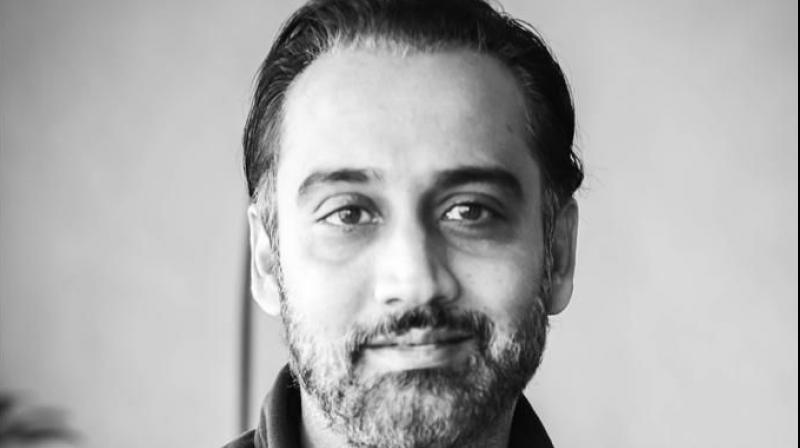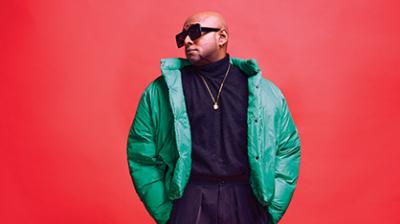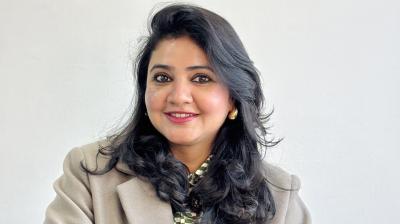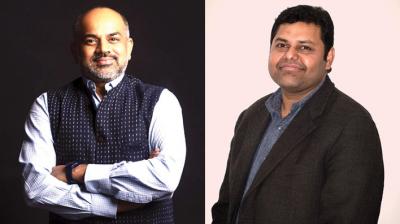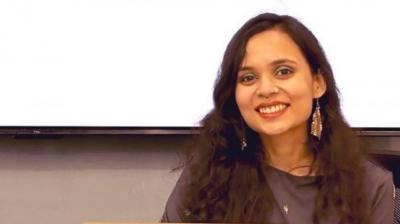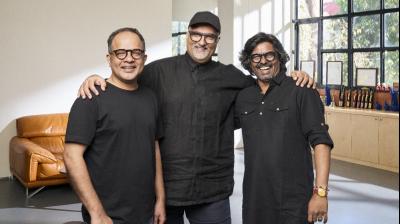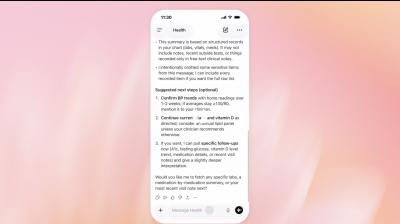India’s fast-growing appetite for new-age racquet sports has opened up a fresh lane of opportunity, and PadelPark, with a 70% share of national padel infrastructure, is aiming to lead the charge. Founded by Ronak Daftary, Jigar Doshi, Nikhil Sachdev and Pratik Doshi, the company has been central to bringing world-class facilities, coaching, tournaments and community participation into India’s burgeoning padel ecosystem.
As the sport edges closer to official inclusion in the Asian Games and garners recognition from global federations, PadelPark has entered a long-term partnership with McDonald’s India (West & South). The collaboration aims to professionalise the sport, expand grassroots participation, and prepare young Indian athletes for international competition through structured academies, foreign coaches, school programmes and youth-driven outreach.
In this chat, Nikhil Sachdev, co-founder, PadelPark, unpacks the brand’s strategy, India’s evolving padel landscape, the marketing levers shaping adoption, and why the McDonald’s partnership could become a defining accelerator for the sport’s next decade.
Edited excerpts:
What does the collaboration with McDonald’s India mean for PadelPark at this stage of the sport’s evolution in India?
Padel, and new sports in general, are at a turning point in India. It’s gone from people questioning what the sport even is, to taking it seriously. Recently, there was a major announcement about the Asian Games, and most likely next season padel will be part of it. Slowly and steadily, the sport is being recognised by sporting bodies globally. There’s a real push for it to be recognised at the highest level.
The McDonald’s partnership is timed perfectly with the sport’s shift from recreational to professional. We’ve been running our academy for about a year, and while we’ve brought a lot of people into the sport, it’s still at a beginner level. Even our coaches, though experienced, are new to padel. So upgrading coaches is important. The professional space is what really matters to us.
The long-term partnership helps build the ecosystem sustainably:
It takes effort, money and resources to bring in international experts. We needed a partner who shares the long-term vision, four to five years. We’re very happy McDonald’s is on board. The plan is to professionalise the academy, start pro programmes, bring in padel experts from abroad, upgrade coaches, grow the academy and hopefully develop Indian players for the future.
From a brand-building perspective, what made McDonald’s the right partner for padel’s growth story in India?
Everyone associates McDonald’s with one thing, but as a global entity, they have been promoting sports selectively across the world, whether it’s football (through FIFA), or padel in the UAE through junior academies. They are associated with professional tournaments. In India, this may seem new, but globally they have a mandate to push health and sport.
Community-building is a natural alignment. Sport and community is their biggest attraction. They’re very big on bringing communities together. And in India, most sports are very mass in nature, cricket, hockey, where a brand can easily get lost. This is new. It’s a unique opportunity to cater to a smaller, younger audience picking up the sport. Also, padel’s family-friendly appeal sealed the match. Families - spouses, kids, even grandparents - play padel and pickleball. These sports are accessible to a wide demographic. McDonald’s has always positioned itself as a family restaurant. So this sport aligned perfectly with their values.
How will the partnership translate on-ground, through facilities, tournaments, community programmes or school outreach?
We have a very exciting calendar. One major goal is to upgrade coaching standards in India. So we’re bringing in a coach from Spain, Argentina or another traditional padel country, who would come full-time or at least for a long period. We will also tie up with an academy abroad to develop curriculum for us. Young athletes are the focus. We really want to target 12–15 year olds and work with them over four to five years so that by 18–20, they’re ready to compete internationally. Having seen global tournaments and Premier Padel up close, I can say there’s a lot of work to be done. Because, unlike maybe a sport like pickleball that's new everywhere, where you’ll see Indian players already in the top 10 or 15 in the world, in padel, that's not going to happen. Padel, to see an Indian player in the top few 100 will be an achievement, to be very honest, because it's a really established sport outside of India - Spain, Argentina, Italy, and other European countries have been playing it for years. So you can't just come in and start challenging - you need to really work on it. And hopefully, after five-six years, we will have few players who show that potential. So its a long term dream, which we can look at as a long-term vision: Bring in the best coaches, tie up with the best academies, build dedicated high-level training facilities, and develop players who can compete at the Asian Games, Commonwealth Games, and hopefully by 2032, represent India.
What marketing levers are you using to build awareness, aspiration and everyday relevance for padel?
You’ll see a lot of content, featuring coaches, kids, progression stories. We also work with a few top-ranked Indian players. We support them with tournaments, gear, equipment, so they become role models for kids. Our professional academy will have senior and junior teams. The senior team will start playing across the Asian circuit, Dubai, Indonesia, Japan. Kids will see that there’s a clear pathway. The good thing is, a lot grown-ups are playing it, and a lot of those parents are keen that their children participate in padel because it’s a level playing fieldat the moment. It's a unique opportunity also for any child who picks up the sport now as they are probably going to be from one of the first few 50 or 100 kids that have picked up the sport in the country, that's a huge advantage.
Does the McDonald’s partnership help you enter new markets where the brand has strong community footprints?
100%. That was key for us. In metros, most people have heard of padel. Celebrities play it. Courts are visible. But how do we spread awareness in smaller cities? McDonald’s gives us reach across the country and across socioeconomic segments. That was one of the major attractions. Their growth and reach, even through restaurants, online, social media, and in-store activations helps us spread awareness. You’ll see some really interesting activations both on the padel court but also in store with them to spread the word about the sport.
Beyond awareness, what are the biggest barriers to expanding padel in India?
Infrastructure remains the biggest challenge. Space is a problem, especially in cities like Mumbai and Delhi. But that's where our 15 years in sports infrastructure kind of helped us out, because we were part of the sporting ecosystem for a really long time. Sport doesn’t give high commercial returns to landowners compared to real estate, unless people value community impact. But fortunately, sport also has a really emotional attachment for a lot of people.
The social element is a huge differentiator. This is not tennis or golf. It’s easy to get into and easy to get back into a healthy lifestyle. Many in the community use padel or pickleball as cardio. We’ve seen families spending four–five hours playing sport every Sunday. Within a month, you can have 30–40 people to play with. It’s addictive and communal. People have made friendships and relationships through the sport.
Are you seeing interest growing in tier 2 and 3 markets as well?
Absolutely. One of our business verticals is manufacturing padel courts, Sky Padel. In 18 months, we have sold and installed 220 courts across the country.
Demand is surprisingly strong outside metros: Mumbai and Bengaluru are major markets, but next comes Chandigarh, then Kochi. In fact, Chandigarh has more padel courts than South Bombay. We’ve installed 20–25 courts there. The sport is expanding wherever there is a culture of recreation: Kochi is a sport-loving city. Chandigarh has picked it up massively. At a tournament last week, we had 70–80 teams in Chandigarh alone. Those are big numbers for smaller cities. We’ve also seen demand from Jaipur, Gujarat, Baroda, and Goa will explode this year with 40–50 courts. So the growth is very dynamic.
Sports like pickleball are rapidly gaining popularity in India. How is padel differentiating itself in this competitive ‘new-age sport’ landscape? Do you foresee a scenario where these sports grow collectively or is competition intensifying among them?
It’s interesting because India is unique. In America, pickleball leads, though padel is growing fast. In Europe, padel dominates. In India, both are growing simultaneously.
While, pickleball has been around longer, three to four years before padel - so it’s ahead, but growth rates are similar. Pickleball has a really big opportunity for professionalising the sport really fast, because the talent globally is newer as everyone's kind of started at a similar time. It’s like table tennis: accessible everywhere.
Padel, meanwhile, has different strengths. It's easy to play, but hard to master. And needs more space and investment. So it won’t be everywhere. But it offers a great recreational experience and more intense as a workout. As a business for venues, it has great potential for wellness and community programmes.
So the current opportunities in both the sports are really different. Having said that, the future will be integrated. Combined facilities will become common, padel, pickleball, wellness, gyms, giving a holistic experience. That’s where the business is moving.
What does the next chapter look like for padel in India over the next five years?
There’s still massive growth ahead for padel. India can easily have 5,000–10,000 padel courts. We’re probably at around 500 right now. We can have a few lakh players in India for sure. So the boom is yet to come.
The Asian Games announcement could be a catalyst. Now that the inclusion at the Games is likely, things will move rapidly. Governance and federation structures will formalise. This is again a unique opportunity that we don't have years and years of red tape, unlike other sports, that are mired in controversy and long lasting Federation battles due to which the sport is suffering. Luckily, padel doesn't have that history and baggage. So what's going to happen is that the sports is going to get very organised. We can build this right from the beginning. You’ll see governance, large facilities, professional academies. The next couple of years will be transformative.
As far as we are concerned, we are just excited we found a partner who allows us to experiment and build for the sport. We’re grateful for the opportunity to try and do something meaningful for the sport in India.

.jpg)
